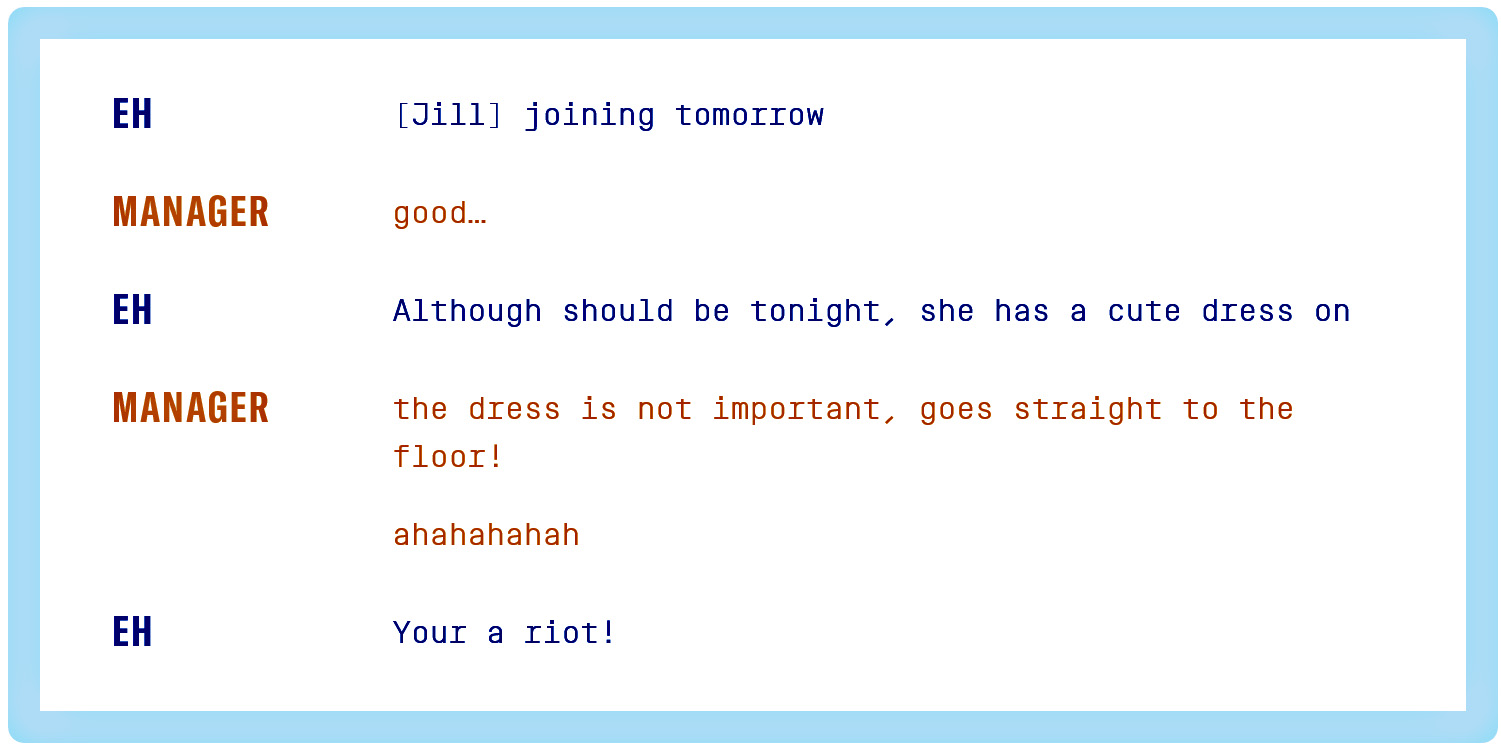While I’ve been watching the Peter Strzok hearing, I’ve also been reading David Dayen’s long piece at HuffPost about Mike Picarella, a Wall Street banker who took a high-ranking sales job in 2011 with HSBC, one of the world’s largest banks. As it happens, HSBC is also one of the most corrupt banks in the world: “In 2012,” Dayen writes, “the head of the Justice Department’s criminal division, Lanny Breuer, admitted that if the government pressed charges, HSBC would have ‘almost certainly’ lost its banking license in the U.S.”
But that’s not all. HSBC was also, perhaps unsurprisingly, a hotbed of sexual harassment. For example, here’s an internal message between Eileen Hedges and another manager about an attractive junior colleague:

Ha ha ha. That’s hilarious.
This is the start of Dayen’s story. It ends a few thousand words later with Picarella reporting various cases of sexual harassment to HR and then going to court when he got fired shortly thereafter. If you want to know how it ends, just click the link.

















